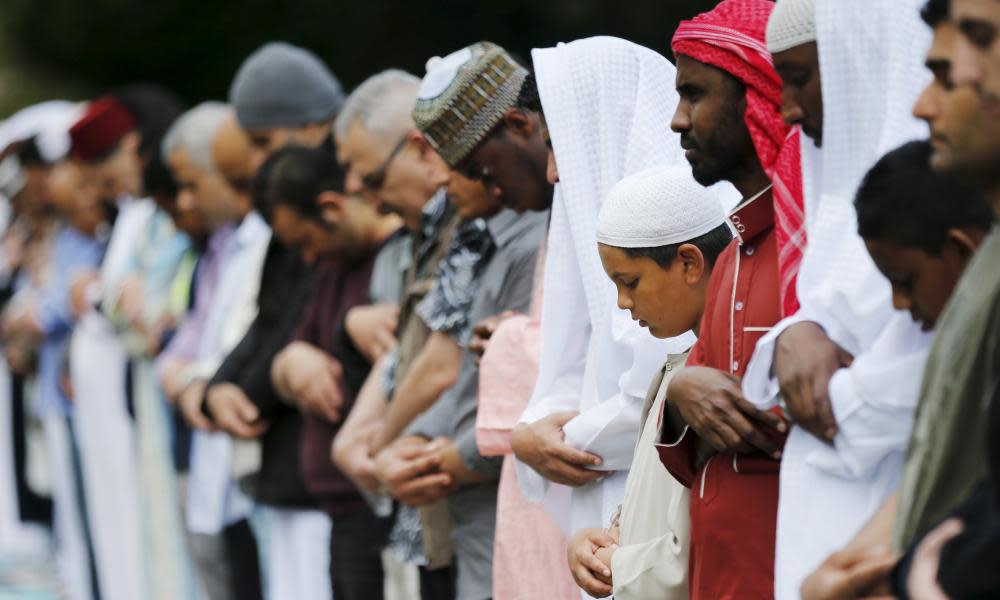Muslims place greater importance on national identity, finds UK study

Muslims in the UK attach more importance to being British than the general population, according to a report.
They also place greater emphasis on education, and identify more strongly with their religious identity than their non-Muslim peers.
The 75-page report from Ipsos Mori analysed research and opinion polls conducted since 2010 to paint a comprehensive picture of British Muslims.
The UK’s Muslim population was 3 million at the 2011 census, but was estimated last year to be 4.1 million, or 6.3% of the population. Almost half are under the age of 24 and one-third are under 15, making them the fastest-growing group among young Britons.
Eighty-five percent said they felt they belonged to Britain. More than half (55%) said their national identity was important, compared with 44% of the general population.
Religious identity is extremely or very important to 94%, and more than half pray at least five times a day or engage in worship of some kind.
Asif Aziz, the chairman of the Aziz Foundation, which commissioned the report with the Joseph Rowntree Charitable Trust, Barrow Cadbury Trust and Unbound Philanthropy, said: “While British Muslims identify strongly with their religious identity, they are also staunchly British.”
Muslim children have high aspirations for their educational achievement, with 56% saying it was very likely they would go to university, compared with 38% of non-Muslim children. More Muslim girls than boys expected a university education.
More than 7% of Muslims are unemployed, compared with 4% of the UK population as a whole.
Almost two-thirds of Muslims said they think different religious and ethnic groups should mix more. A majority of Muslims of all ages wear a poppy on Remembrance Day and almost three-quarters said they always or sometimes send Christmas cards.
Forty-five percent of Muslims under 24 said at least half their friends are from outside their ethnic group. Those in London are more likely to have a diverse group of friends than Muslims in the rest of the country.
Muslims tend to have more conservative social attitudes than the general population, the report said. Half of Muslim men and one-third of women believe wives should obey their husbands, and 38% of men said it is acceptable for a British Muslim to have more than one wife. A majority said homosexuality should not be legal.
One in four Muslims are worried about being physically attacked because of their skin colour, ethnic origin or religion.
Kully Kaur-Ballagan, a research director at Ipsos Mori, said the report showed the vast majority of British Muslims “believe that being Muslim and being British is entirely compatible”.
Younger Muslims were “more open in their views and have more diverse social networks”, she added.

 Yahoo News
Yahoo News 
